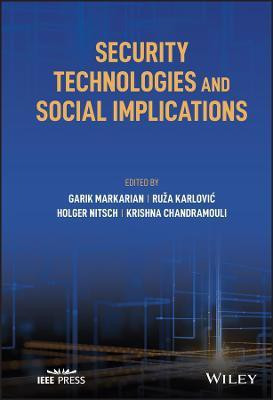Security Technologies and Social Implications(English, Hardcover, unknown)
Quick Overview
Product Price Comparison
SECURITY TECHNOLOGIES AND SOCIAL IMPLICATIONS Explains how the latest technologies can advance policing and security, identify threats, and defend citizens from crime and terrorism Security Technologies and Social Implications focuses on the development and application of new technologies that police and homeland security officers can leverage as a tool for both predictive and intelligence-led investigations. The book recommends the best practices for incorporation of these technologies into day-to-day activities by law enforcement agencies and counter-terrorism units. Practically, it addresses legal, technological, and organizational challenges (e.g. resource limitation and privacy concerns) combined with challenges related to the adoption of innovative technologies. In contrast to classic tools, modern policing and security requires the development and implementation of new technologies using AI, machine learning, social media tracking, drones, robots, GIS, computer vision, and more. As crime (and cybercrime in particular) becomes more and more sophisticated, security requires a complex mix of social measures, including prevention, detection, investigation, and prosecution. Key topics related to these developments and their implementations covered in Security Technologies and Social Implications include: New security technologies and how these technologies can be implemented in practice, plus associated social, ethical or policy issues Expertise and commentary from individuals developing and testing new technologies and individuals using the technologies within their everyday roles The latest advancements in commercial and professional law enforcement technologies and platforms Commentary on how technologies can advance humanity by making policing and security more efficient and keeping citizens safe Security Technologies and Social Implications serves as a comprehensive resource for defense personnel and law enforcement staff, practical security engineers, and trainee staff in security and police colleges to understand the latest security technologies, with a critical look at their uses and limitations regarding potential ethical, regulatory, or legal issues.


